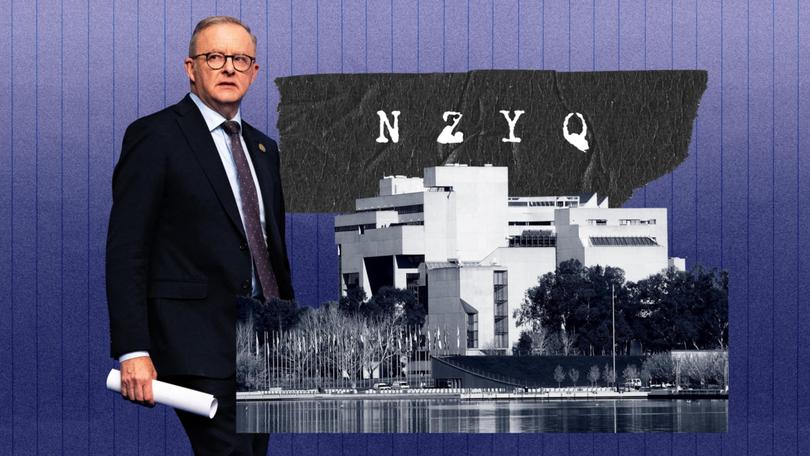MARK RILEY: Albanese Government ministers will be fretting as fresh immigration detention challenges mount
Senior ministers within the Albanese Government are deeply concerned they are about to lose a significant power battle.

Senior ministers within the Albanese Government are deeply concerned they are about to lose a significant power battle.
And the consequences could be dire.
It is a battle over the very separation of powers that define the roles of the executive, the Parliament and the judiciary under our Constitution.
Sign up to The Nightly's newsletters.
Get the first look at the digital newspaper, curated daily stories and breaking headlines delivered to your inbox.
By continuing you agree to our Terms and Privacy Policy.The ministers are concerned that the NZYQ case that led to the release of 149 criminals from immigration detention in November has set the High Court on a path to codify those powers in a way that would lead to more mass releases.
The NZYQ ruling drew a line between the Government and the judiciary, ruling that it is the province of the courts and not the Parliament to impose punishment upon individuals for breaching laws.
Those ministers fear that a series of rulings over the next two to three years could further weaken the Government’s hand by further defining the central ruling that the indefinite detention of illegal immigrants by governments is unconstitutional because it becomes punishment when there is “no real prospect” of resettling the detainees in their own or a third country “within the reasonably foreseeable future”.
But its concerns about the first of those cases, that of an Iranian man known as ASF17, could be misplaced.
Constitutional lawyers believe in that case the High Court is more likely to become the Government’s friend, not foe.
Professor Anne Twomey, one of Australia’s pre-eminent constitutional experts, believes the NZYQ ruling will work in the Government’s favour in the case of ASF17.
The main difference between the cases is that while NZYQ could not be returned to his home country of Myanmar, ASF17 could be returned to Iran but is refusing to co-operate with the Australian or Iranian authorities to make that happen.
The ruling will have a significant impact on the cases of 172 illegal immigrants who are refusing to be removed from Australia.
He argues that as a bisexual Christian man he would be persecuted for his sexual orientation if he were to go home.
But his claims for protection on that basis have been assessed by the Federal Court and rejected.
And the NZYQ judgement made clear that the courts don’t have much time for litigants who frustrate the official processes to effectively help engineer their own misfortune.
In the High Court’s reasons in NZYQ it noted: “This was not a case of a person in immigration detention having contributed to the frustration of the pursuit of lines of inquiry by officers of the Department attempting to bring about the person’s removal”.
In other words, NZYQ — a Rohingya man convicted of raping a 10-year-old boy — had co-operated with the authorities in trying to secure his resettlement.
The Government will argue that ASF17 has done the opposite by refusing to apply for a return to his home country of Iran.
The Federal Court has already accepted that argument in ruling against ASF17’s claims and Twomey believes there is a good chance that the High Court will do the same.
“I think the Commonwealth’s got a good argument here and that is that people shouldn’t be able to force their way into the community by frustrating the ability of the Commonwealth to deport them,” she told 7NEWS.
The ruling will have a significant impact on the cases of 172 illegal immigrants who are refusing to be removed from Australia.
If ASF17 were to win his case, it is conceivable that the Federal Government would be forced to release most, if not all, of that cohort.
So, the stakes are high. The hearing is set to begin on April 17.
If constitutional experts like Anne Twomey are correct, the Government could win that case.
But there are many more legal challenges — indeed thousands more — in the system.
This Government, like governments before it, has been settling some of these cases by granting bridging visas to the plaintiffs before their cases reach the High Court and run the risk of judgments that further limit executive powers.
But it is almost certain that a few will be heard as test cases over coming years as the High Court seeks to more clearly define the separation of powers on immigration issues.
And that is what is making the Albanese Government ministers exceedingly nervous.

